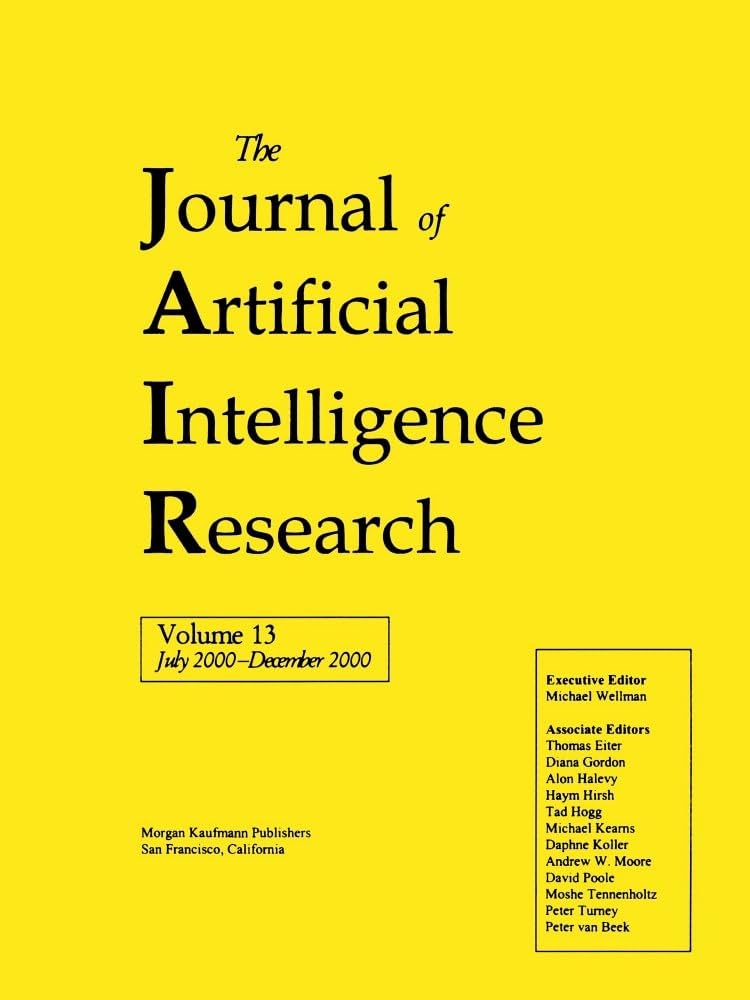学会解决社会困境:调查
IF 4.5
3区 计算机科学
Q2 COMPUTER SCIENCE, ARTIFICIAL INTELLIGENCE
引用次数: 0
摘要
社会困境是指在相互依赖的决策过程中,个人的理性可能会导致社会品质低下的结果。社会困境在社会、生物和计算系统中无处不在,这促使这些不同学科开展了大量研究,探讨通过促进和维持相互合作来避免不良结果的机制。这些研究大多侧重于研究面临困境的个体如何根据以往的经验调整自己的行为,从而学会合作。具体而言,研究了三类学习方法:进化博弈论学习、强化学习和最佳反应学习。本文以两难博弈为背景,对这些学习方法进行了全面综合的研究。我们正式介绍了两难博弈及其固有的挑战。然后,我们概述了这三种学习方法,并针对每种方法提供了解决两难问题的方案概览。最后,我们进行了比较总结,并讨论了需要进一步研究的方向。本文章由计算机程序翻译,如有差异,请以英文原文为准。
Learning to Resolve Social Dilemmas: A Survey
Social dilemmas are situations of inter-dependent decision making in which individual rationality can lead to outcomes with poor social qualities. The ubiquity of social dilemmas in social, biological, and computational systems has generated substantial research across these diverse disciplines into the study of mechanisms for avoiding deficient outcomes by promoting and maintaining mutual cooperation. Much of this research is focused on studying how individuals faced with a dilemma can learn to cooperate by adapting their behaviours according to their past experience. In particular, three types of learning approaches have been studied: evolutionary game-theoretic learning, reinforcement learning, and best-response learning. This article is a comprehensive integrated survey of these learning approaches in the context of dilemma games. We formally introduce dilemma games and their inherent challenges. We then outline the three learning approaches and, for each approach, provide a survey of the solutions proposed for dilemma resolution. Finally, we provide a comparative summary and discuss directions in which further research is needed.
求助全文
通过发布文献求助,成功后即可免费获取论文全文。
去求助
来源期刊

Journal of Artificial Intelligence Research
工程技术-计算机:人工智能
CiteScore
9.60
自引率
4.00%
发文量
98
审稿时长
4 months
期刊介绍:
JAIR(ISSN 1076 - 9757) covers all areas of artificial intelligence (AI), publishing refereed research articles, survey articles, and technical notes. Established in 1993 as one of the first electronic scientific journals, JAIR is indexed by INSPEC, Science Citation Index, and MathSciNet. JAIR reviews papers within approximately three months of submission and publishes accepted articles on the internet immediately upon receiving the final versions. JAIR articles are published for free distribution on the internet by the AI Access Foundation, and for purchase in bound volumes by AAAI Press.
 求助内容:
求助内容: 应助结果提醒方式:
应助结果提醒方式:


